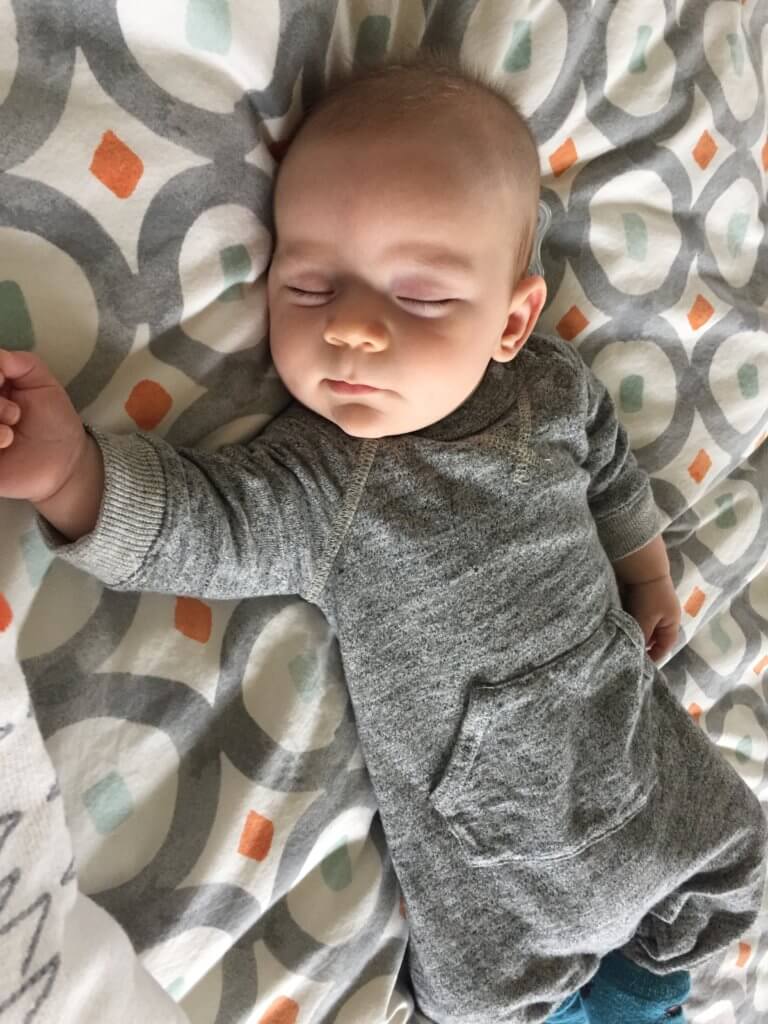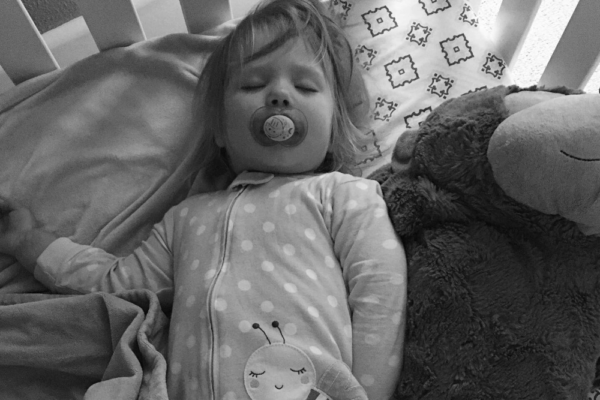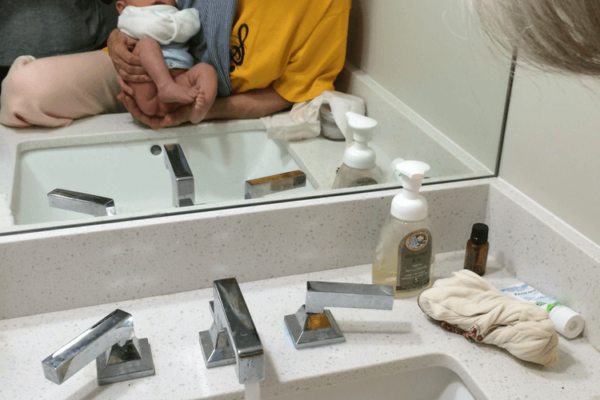Singing to Sleep
Sleep. Sleeeeep! SLEEP! Oh, how I miss a good night’s sleep. My mind is so jumbled most days that it’s truly hard to concentrate and prioritize. My partner and I were actually talking yesterday about how we can prioritize our to do list better. This was never a problem for me before. The old me was efficient at managing my time and getting everything I need done. The new me starts something, gets halfway done. Starts something else, gets a quarter of the way done. Walks into a room and forgets completely what I was about to do.
Is this my lack of sleep or my amazing new brain that formed in parenthood?
Between the two, I only have the power to make changes when it comes to sleep. So here I am.

Sleep is one of those things for young children that follows development cycles. Once you feel like you have a routine…BAM…it changes. Right now, I’m dealing with the four-month sleep regression. It’s tough. You probably know what I’m talking about, because even if it didn’t happen for you at four months, it happened, or is still happening.
Around 4 to 6 months can be the time to start introducing routines to the sleep schedule. We got our evening bedtime routine set by about month three. Our routine goes like this: pajamas (including crazy nighttime diaper set up with the cutest woolly covers ever), feeding, listen/sing to nighttime music on loop and bounce on a yoga ball until baby falls asleep. Then, the baby inevitably wakes up 1 or 2 times (much better than in the beginning) and we bounce some more until he falls asleep.
My partner and I picked the nighttime songs together, making sure we each got input. I mean, we have to listen to them A LOT. My addition was Bob Marley, Redemption Song because it was the only song I could remember by heart when my baby was firstborn. Since I’ve sung it so much, it provides comfort and now even works in the car when he’s upset. It reminds me of my younger days, backpacking through South America, of beaches, of sunshine. It also helps me calm down as well. When I’m calm, it helps the baby calm down too. Those *mirror neurons are pretty amazing.
This also has me working on my singing voice. I am so happy that my baby really doesn’t care how I sing. Science says they just love the sound of your voice and a sing-songy voice is comforting, regardless of how good of a singer you are.
With enough things to feel inadequate about in parenting, I’m glad this one truly doesn’t matter.
Now it’s time to start a nap time routine and I’m feeling challenged. First, THERE ARE SO MANY OPINIONS about nap routines, specifically when they should sleep and how much. The truth is, there’s no magic sleep cycle or sleep routine that works for everyone. I am muddling through trying to find my way while also paying attention to my baby’s cues. Some days he needs more sleep than others. I’m watching for signs of drowsiness before he gets overtired and he especially needs my help right now learning to fall asleep. This is why the routine is so important. Routines will eventually equal GOOD SLEEPERS.
I’m holding onto the light at the end of the tunnel. I’ve decided that the first night I get 8 hours of sleep in one stretch, I will celebrate by giving my all to momhood that day. And you may have to remind me of this, I won’t be disappointed when the next night isn’t as good. At least I’ll have Bob Marley to keep me company.
Looking for songs, finger plays, or rhymes for young kids? Check out the King County Library System’s: Tell Me A Story. You’ll find scripts and videos of librarians from across the country doing their favorite songs and finger plays for young children.
*Mirror neurons
These neurons play a key role in social interaction, connection, and learning. Also known as emotional contagion. This is our ability to feel other people’s emotions, or the root of empathy in humans. We are biologically equipped to understand where others are coming from and to influence others. In other words, when our children are upset, we can calm our own brain in order to influence and calm theirs.
“We see an act, we understand the purpose of the act, and we ready ourselves to mirror it.” Dr. Daniel Siegel M.D., Tina Payne Bryson Ph.D
Check out this PBS video for an excellent 14 minute Nova episode on mirror neurons.





Comments